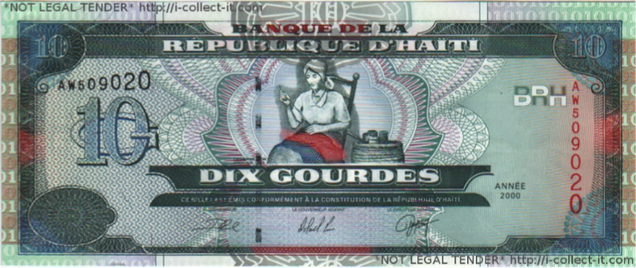Catherine Flon’s Thread of Hair

By Lydje Lahens
Lydje Lahens is a student at Boston University’s Metropolitan College. Last summer he completed “The Irish in Boston,” a course co-taught by four CGS professors. The following was written for the course.
I migrated to the United States from the Republic of Haiti when I was very young, and I have lived in the Boston area for the majority of my life. As early as I can remember, I had the gift of words and sounds. I constantly hear melodies in my head, and I have spent considerable time late at night writing lyrics or composing music; mostly I write urban American music. In 2005 I bought a house in Dorchester, Massachusetts. I knew very little about the area, except for what I had heard from various news broadcasts, or that there was a lot of crime and violence in this area of Boston. But now that I live there, I must say Dorchester is alright. One of the things that stands out to me about Dorchester is the strong presence of Irish immigrants. Before I lived in Dorchester, I had always thought of it as a black neighborhood, as most people do.
Living in Dorchester, I became curious about Irish history; I knew very little about how the Irish came to Massachusetts or why they were such a strong community in Boston. When I took the course “The Irish in Boston” at Boston University, I gained a profound insight into a group of individuals that have been very influential in Boston. I also learned a lot about their history, art, politics, and religion. When I learned about the people who migrated from Ireland to Boston, what they brought with them, and their journey and experience, I started to think about my own journey, history, family, and the sacrifices I have made for myself and others such as my mother, brothers, and father. I hadn’t thought about these things in a long time.
As most Haitians are, I have always been proud of my Haitian history. “The Irish in Boston” course allowed me to think about my own history, and I noticed there were a lot of aspects of Irish history that I could identify with as a Haitian person. I identified with the Irish love and respect for history, art, spirituality and politics; I identified with their struggle during famine; and with the fact that they had to leave the home that they love so dearly in search of a better life. Those are all things that my people and I have experienced and that we understand very well. Haitian people are known for their music and art and because they document their history with their art; Irish people do the same thing.
I was so inspired by what I learned and the connections between Haitian and Irish people that I felt like the best way to express that was through a poem. In a similar fashion as the Irish did, I wanted to show my Haitian Pride by writing a narrative poem to commemorate Catherine Flon for her role in Haitian history. “The Battle of Vertières” was a major occurrence during the Second War of Haitian Independence and was fought between Haitian rebels and French expeditionary forces on 18 November 1803 at Vertières, north of Haiti. The battle is largely seen as the beginning of the end of slavery in Haiti, and after this battle Catherine Flon was asked to create the first flag of independent Haiti.
Catherine Flon’s Thread of Hair, Lydje Lahens, © 2015
She could barely sew a button on a shirt, when her godfather asked her to sew our fabric, her fingers ineptly moved to tie up loose ends of her hair, threading our foundation, our bloody history.
Her face painted on banknotes, celebrated every May, every year, for an identity without whips, shackles and chains she gave us, no more jangling when we walk across the field, no more bondage.
Now a symbol of the free, emblem of the untamable, spiritual power of the mountainous land, and forest, and the
Voodoo that dances to the African drums beating in our hearts. She cared for our wounds, ripped out the white, made us red and blue, colors of the Voodoo God of war Ogou.
United at last, we found strength, and we shed blood, too much perhaps, and the punishment was momentous, but it’s all worth it. Cause we are free, and we are clean, and it suits us. And no matter how fragile and slippery our coasts and hills may be, cyclonic winds can never fissure Catherine Flon’s thread of hair.